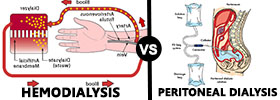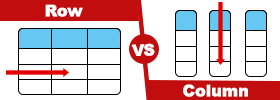Difference between FCA and Ex Works
Key difference: FCA and Ex Works are two types of Incoterms rules. Ex Works is one of the simplest and most basic shipment arrangements. The seller is responsible of making the goods available at its premises, where the buyer can access them. In FCA, the seller is responsible for providing the goods and for arranging transportation at the risk and expense of the buyer.
FCA and Ex Works are two types of Incoterms rules. Incoterms stands for International Commercial terms that are a series commercial terms as defined by the International Chamber of Commerce (ICC). They are the standards used in International commercial transactions. Incoterms are a series of three-letter trade terms referring to common contractual sales practices. The Incoterms were meant to clearly communicate the tasks, costs, and risks associated with the transportation and delivery of goods. ICC aimed to remove the uncertainties arising from different interpretations of terms; hence it published a list of internationally accepted terms and rules.
EXW – Ex Works (named place of delivery)
 Ex Works is one of the simplest and most basic shipment arrangements. It places the greater responsibility of shipment on the buyer of the goods, with minimum responsibility on the seller. The seller is responsible of making the goods available at its premises, where the buyer can access them. The buyer is responsible for unloading and shipping the goods.
Ex Works is one of the simplest and most basic shipment arrangements. It places the greater responsibility of shipment on the buyer of the goods, with minimum responsibility on the seller. The seller is responsible of making the goods available at its premises, where the buyer can access them. The buyer is responsible for unloading and shipping the goods.
The Ex Works term is often used when making an initial quotation for the sale of goods. It is the basic cost of the goods without any of the shipment costs. EXW means that a seller has the goods ready for collection at his premises on the date agreed upon. The sellers work is then done. The buyer has to pick up the goods, load them, ship or export them, and unload them at the desired location, all at his own cost. Hence, the buyer is responsible for the safety of the goods, the export charges, insurance, and any other charges involved for shipping. The buyer bears all the risk.
FCA – Free Carrier (named place of delivery)

In this type of transaction, the seller is responsible for providing the goods and for arranging transportation. However, the seller acts at the risk and the expense of the buyer. What that means is, when the goods are ready for export, the seller will deliver the goods to a predetermined port or destination point, for example the loading docks. The seller pays for carriage to the named point of delivery, where the goods and the assumed risk passes to the first carrier or freight forwarder, which is named by the buyer. The buyer will assume all cost of shipment from this point onwards, including export charges and insurance costs.
Image Courtesy: quettawalainc.com, amlinkint.com









Add new comment